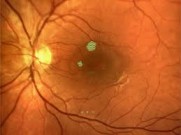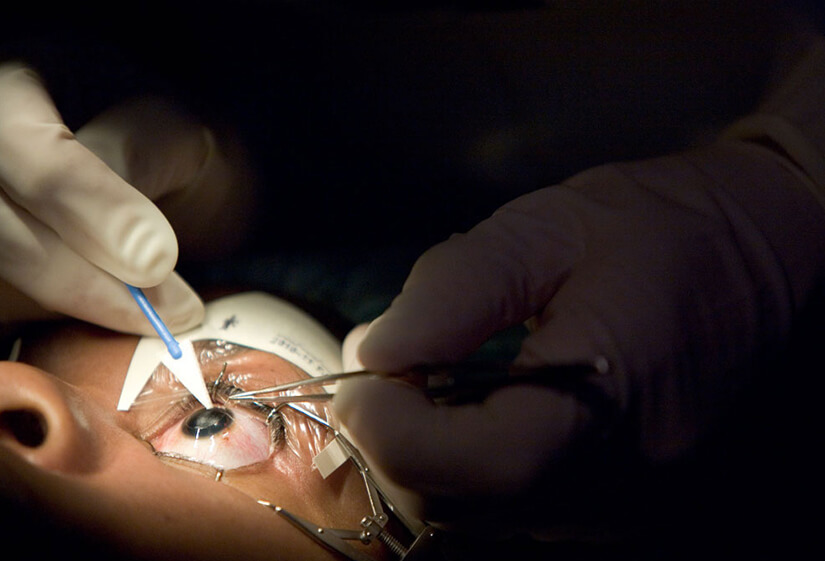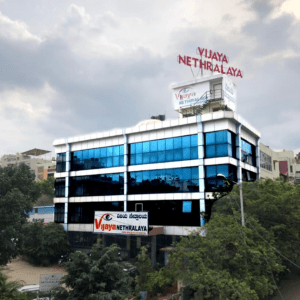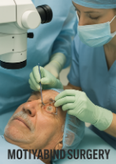Central Serous Chorioretinopathy affects the retina, causing fluid buildup beneath it, leading to blurred or distorted central vision.

Causes of Central Serous Chorio retinopathy:
- Stress often triggers or exacerbates the onset of CSCR. High-stress levels may trigger physiological responses that affect the blood vessels in the retina.
- Long-term or excessive use of corticosteroids, either orally or through topical administration, links to the development of CSCR.
- Hormonal Changes: Some evidence suggests that hormonal imbalances, particularly in men, may increase the risk of developing CSCR.
- Genetics: There may be a genetic predisposition to CSCR, as it sometimes runs in families.
Symptoms of Central Serous Chorio retinopathy:
- Blurred or distorted central vision
- Reduced color perception
- Difficulty discerning fine details
- Central blind spot
- Objects appearing smaller or farther away than they are
- Reduced contrast sensitivity
Diagnosis:
- Visual acuity testing
- Dilated eye examination
- Optical coherence tomography (OCT) imaging
- Fluorescein angiography
Treatment:
- In mild cases where symptoms are minimal, healthcare providers may recommend observing without intervention..
- Laser treatment can seal leaking blood vessels in the retina, reducing fluid accumulation.
- Photodynamic Therapy (PDT): PDT involves the use of a light-sensitive medication that is activated by a laser to selectively target abnormal blood vessels.
- Anti-VEGF Therapy: Intravitreal injections of anti-vascular endothelial growth factor (VEGF) agents may help reduce fluid leakage and improve visual symptoms.
- Corticosteroids: In some cases, oral or topical corticosteroids may be prescribed to reduce inflammation and fluid accumulation.
Author Details:
Dr. Sushruth Appajigowda holds a prominent position as a Cornea, Cataract, Glaucoma, and LASIK Surgeon in Bangalore. He serves as the chief Cataract and Refractive surgeon at Vijaya Nethralaya Eye Hospital, Nagarbhavi Bangalore. Renowned as one of the finest LASIK surgeons nationwide, he brings with him over 12+ years of experience across multiple LASIK platforms, including ZEISS, ALCON, SCHWIND, AMO, and Bausch and Lomb. Dr. Sushruth has successfully conducted over 5000 LASIK procedures and holds the title of Certified Refractive Surgeon and Fellow of the All India Collegium of Ophthalmology. Furthermore, he stands as a distinguished speaker at various National and International Forums, using his expertise to guide you in selecting the most suitable procedure based on your health requirements.

Book Your Appointment NowLhttp://vijayanethralaya.com/link-in-bio/
Conclusion:
Central Serous Chorioretinopathy can have a significant impact on visual function and quality of life. Stress and corticosteroid use are believed to contribute to the development of Central Serous Chorioretinopathy, although the exact cause remains unclear. Early diagnosis and appropriate treatment are essential for managing CSCR and minimizing its long-term effects on vision.











